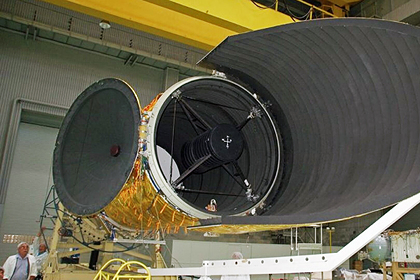The Russian space telescope "Millimetron" will be 100 times cheaper than the American James Webb orbital laboratory, Deputy Director of the Physics Institute of the Academy of Sciences Larisa Likhacheva said at a meeting of the Council of the Russian Academy of Sciences on Space. Her statement is reported by RIA Novosti .
"The cost of James Webb is really incomparable. The difference is 100 times," said the deputy director.
According to her, the estimated cost of "Millimetron" is 20 billion rubles (in 2012 prices). "If we count all the deflators and subtract the funds that have been invested, then frankly, for the implementation that was laid down in the draft project, it remains [to get] another 15 billion," Likhacheva said.
The Deputy director noted that it is planned to allocate 3.3 billion rubles for "Millimetron" by 2025.
In August 2019, Likhacheva reported that the British company, after its acquisition by the American company, refused to supply carbon fiber for the Russian observatory.
In July of the same year, the head of the Astrocosmic Center of the Physical Institute of the Academy of Sciences, Nikolai Kardashev, stated that the American side had suspended the manufacture of matrix receivers for the Millimetron.
The Russian space telescope "Millimetron" ("Spektr-M") is designed to explore the Universe in the millimeter and infrared ranges (at wavelengths from 0.02 to 17 millimeters). In 2013, the observatory was planned to be launched in 2019. Currently, the launch is scheduled for the early 2030s.
The launch of James Webb is scheduled for December from the Kourou cosmodrome in French Guiana using an Ariane 5 rocket. Produced for more than $ 10 billion by the American military-industrial company Northrop Grumman, the infrared observatory will be installed at the second Lagrange point of the Sun-Earth system at a distance of about 1.6 million kilometers from the planet. The main tasks of James Webb are the study of the early Universe, galaxies and supermassive black holes, as well as a detailed study of exoplanets.
Ivan Potapov

